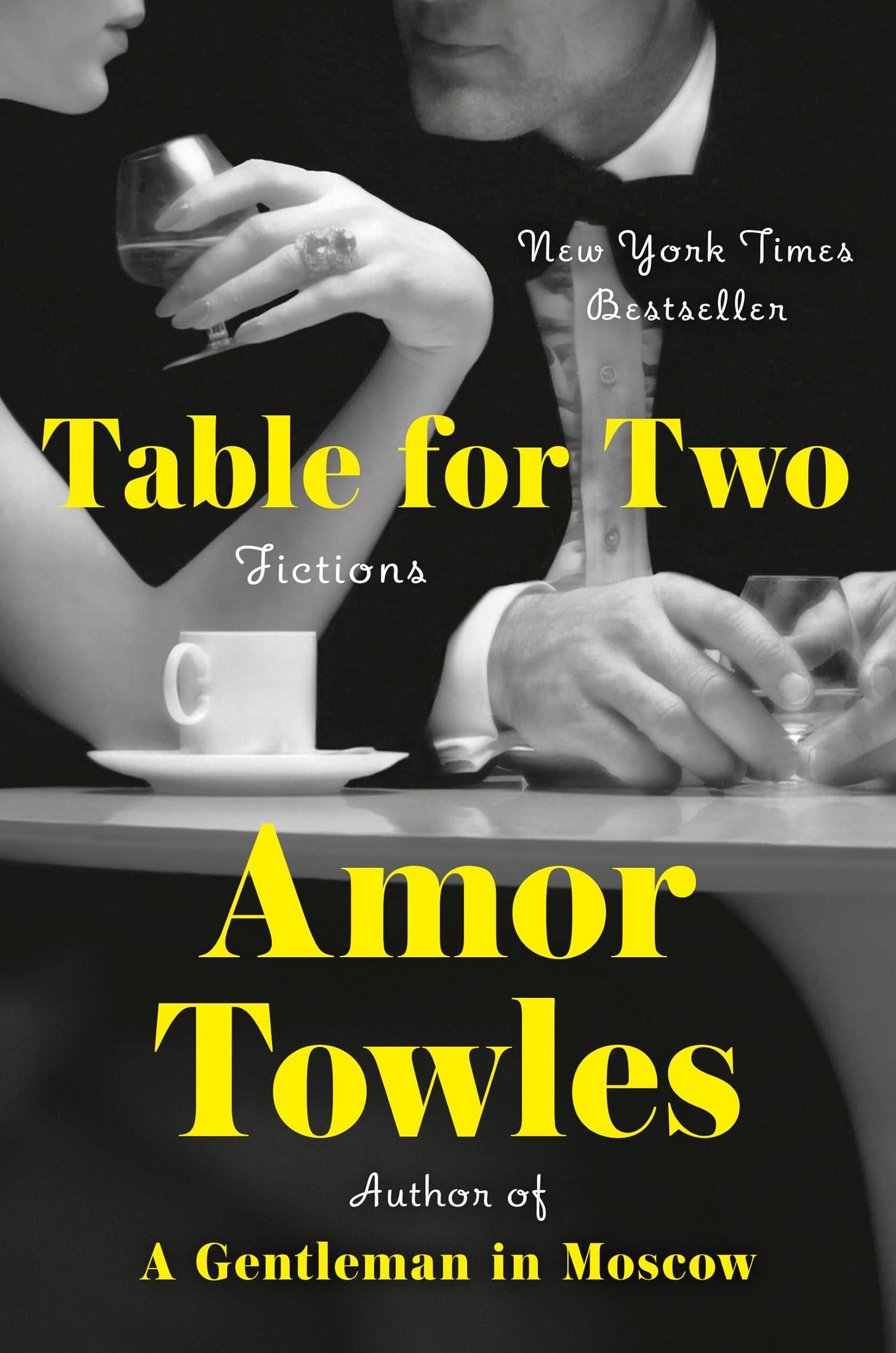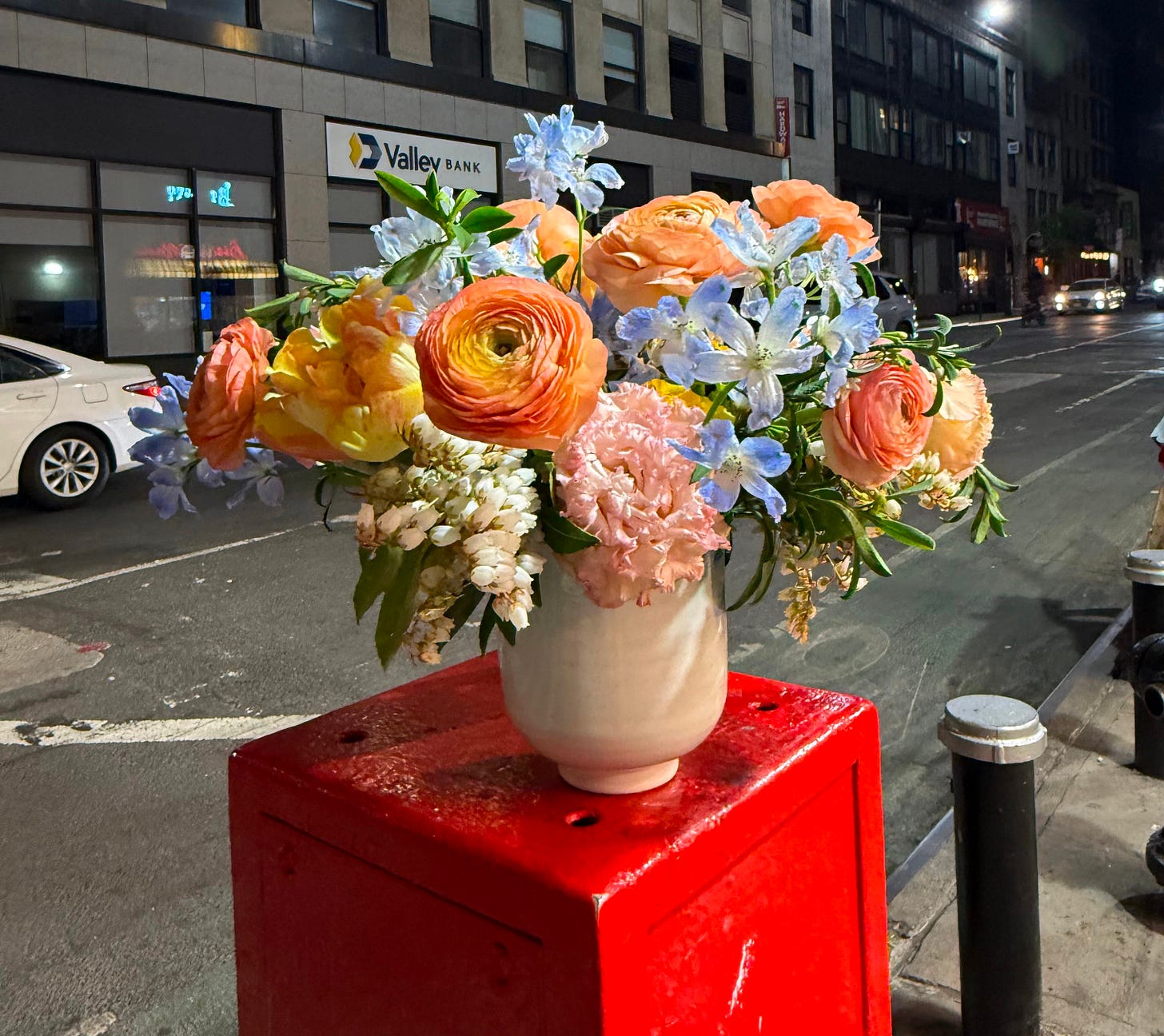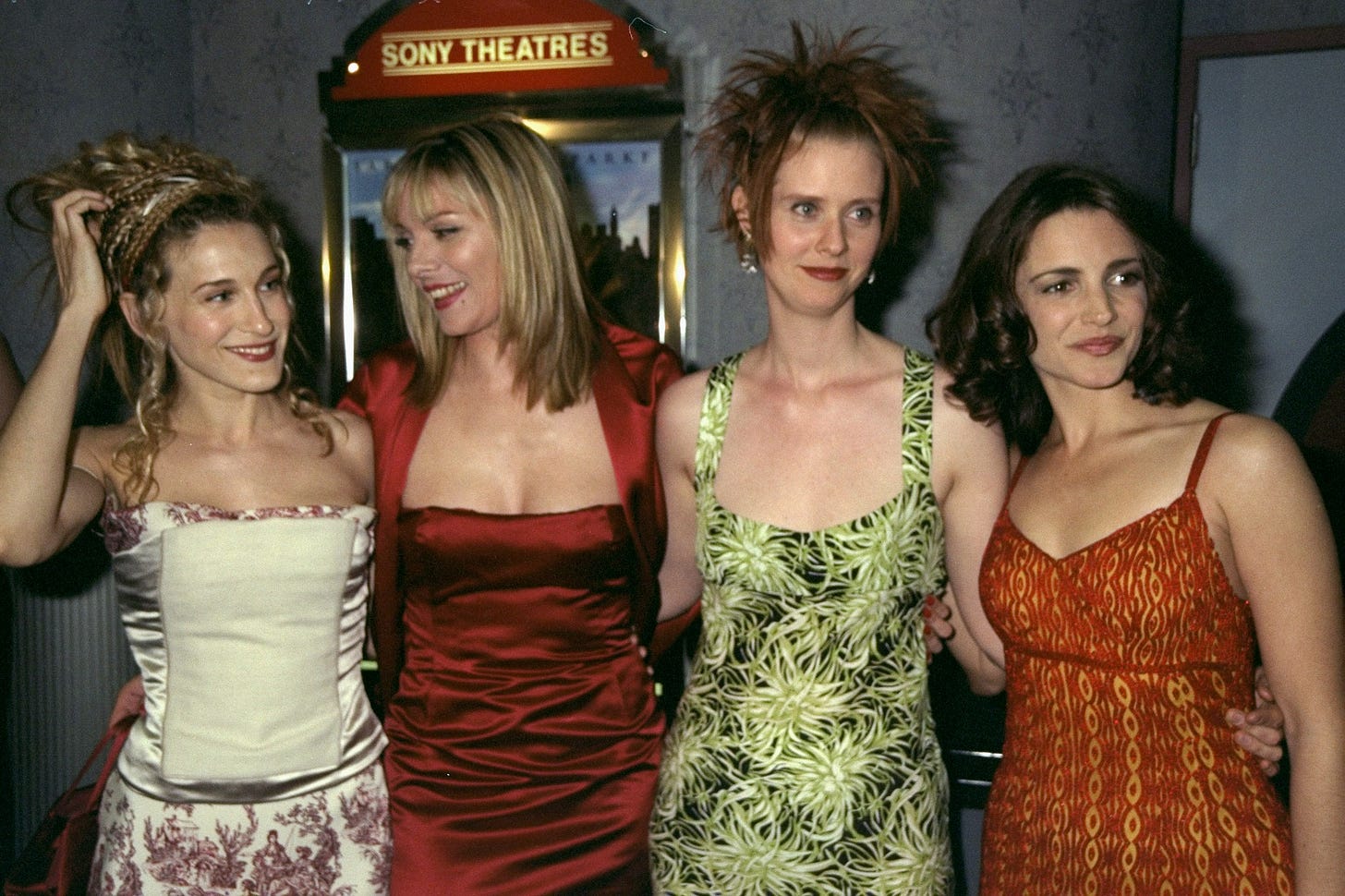how to become friends with literally anyone
no. 10 // it’s not charm, it’s just a singular simple worldview on how i see people
Once in a while, people ask me who my friends are. Do you mainly hang out with friends from school, or friends from work, which, I suppose, is the primary option set for where one could source friends. They are surprised at my answer: that it is neither– really, it’s just friends I’ve made from running around New York. Friends of friends, people I just meet at parties and hit it off with. That sort of deal. Apparently this is unusual, and I want to talk to you about it.
I am the most extraverted person I know. I will talk to anyone under the sun, about any topic under the sun, as long as the other party is interested. Consequently, I end up finding myself invited to random events semi-frequently, which lead to warm, 2-hour coffees, which then lead to more house parties, which settles me nicely into a pleasant infinite loop of meeting new and interesting people.
I am inordinately good at befriending people because (1) I love people and (2) I hate small talk. So by befriend, I mean I don’t mean superficially– I am giving you rapt attention and genuine space to be yourself. I am curious about people– people contain worlds, histories, stories that span across generations and geographies, all layered into their psychology, formulating a unique identity. Isn’t that fascinating? Don’t you want to know more?
So maybe you’re not necessarily super comfortable with each other because you’ve just met, but there is this feeling that I understand you and you understand me. And as long as this mutual belief exists during the course of a conversation, genuine sharing ensues, and voila, a friendship begins to form.
But first, a bit of backstory
As I have alluded to, I am from somewhere random in the South, somewhere nice and square far from both New York and California. Specifically, I grew up in a small to medium-sized town in the heart of the Bible Belt (Southern Baptist), somewhere ethnically homogenous (white), and politically uniform (conservative). You get the picture.
What this means is that people were extraordinarily friendly. I mean, the kind of friendly where you smiled at every stranger and always said hi, how are you when you walked past. The kind of friendly where people would hold open doors even if you were 10 feet away, and they genuinely wouldn’t mind waiting for you as you strolled to catch it. The kind of friendly where, while you’re waiting in line at the local grocery store, you’d comment about the weather with enthusiasm, gusto, and genuinely enjoy the conversation. If this sounds like hell, you’re city folk. If not, welcome to God’s country.

But it’s not as simple or straightforward as my demeanor. I’m a child of immigrants from Beijing, which means from a young age, I was reconciling two radically different cultures, inside and outside the home. Though these two cultures had values, languages, and norms that were in stark contrast, it put me in a unique vantage point. Straddling these worlds, I could see that underneath the surface, we had strong, almost universal threads of commonality…
Philosophically, I believe we are the same.
When I was in high school, I read a book called The Gift of Fear. It explores why people commit violence and how to predict it, delving into the psychological forces that drive human behavior. Gavin de Becker argues that beneath even the most violent acts lie fundamental, universal desires — the need to feel loved, respected, seen. Twist those desires through a series of nonstandard deviations, and violence can follow (FYI readers on the internet– I am not condoning or excusing violence). But what struck me most was not the danger, but the common root. The same core desires that push someone toward destruction — to be loved, respected, seen — are the ones that nudge me out of bed each morning, ride the train to work, or swipe through Hinge.
If this essay was one sentence, it would be: I befriend people easily because I run around the world believing that we are all more or less the same. Meeting someone new feels like a puzzle of empathy– a game of commonality. I ask myself: if I had their background, their values, their limitations and longings, what would I think? What would I want? Need? Crave? When you believe that everyone is driven by the same core human urges, it becomes much more intuitive to understand people. Because don’t you also just want to feel loved and important? Don’t we all? And the extraordinary lengths we would go to to capture these feelings….
Fascinatingly, despite our base commonality, we are superficially strikingly different. We all want love, dignity, safety. But how we define love, safety, dignity– these criteria vary dramatically. And not only that, they vary by incredibly arbitrary factors. Your nationality, gender, religion, cultural heritage, socioeconomic class, hobbies– more broadly, your upbringing. Your social milieu.
So we might all have the same needs, but the superficial markers for how we achieve these desires look very different. This is where people start misunderstanding one another, fighting. But these little big differences, our individual personality phenotypes, is where things get interesting.
Though people aren’t rational, I believe everyone is reasonable. As in, they always have their reasons, and those reasons always make sense within their worldview. More often than not, I wouldn’t do what someone else does — because I’m not them. But if I can understand the circumstances through which someone lives and sees the world, then I can begin to understand why they want what they want, strive for what they do, suffer for the things they believe will bring them value or dignity.

By some accounts, what truly distinguishes us as individuals is our unique assortment of opinions. I think, therefore I am. An amalgamation of opinions, from politics to philosophy to relationships to simple aesthetic opinions. Why life should be lived hedonistically, why most people are dreadfully uninteresting, why you should block him, or why (unintuitively) mass market coffee beans taste better than artisanal ones. These are your opinions! And brick by brick, our viewpoints, sensibilities, idiosyncrasies weave a signature tapestry of who we are– at this moment, but always subject to change, of course.
This never ceases to fascinate me. I want to get to know you, see the way you see the world. All my cards are on the table, and I’m inviting you to reveal yours, indulge in play. I enjoy the conversation, I enjoy making people feel understood and heard and cared for. Because to me, people very rarely feel like strangers. The moment we meet, I already assume we are friends.






As an introvert myself, I find that people like you are the only reason I have any friends at all, so even though I don’t know you, thank you for baring the inner workings of it all, my latest post is also about extroverts if you want the flip side of this sentiment xx
idk if i ever told you but in college i admired how you could literally become friends with anyone so much, like you're such a people person and i love that about you